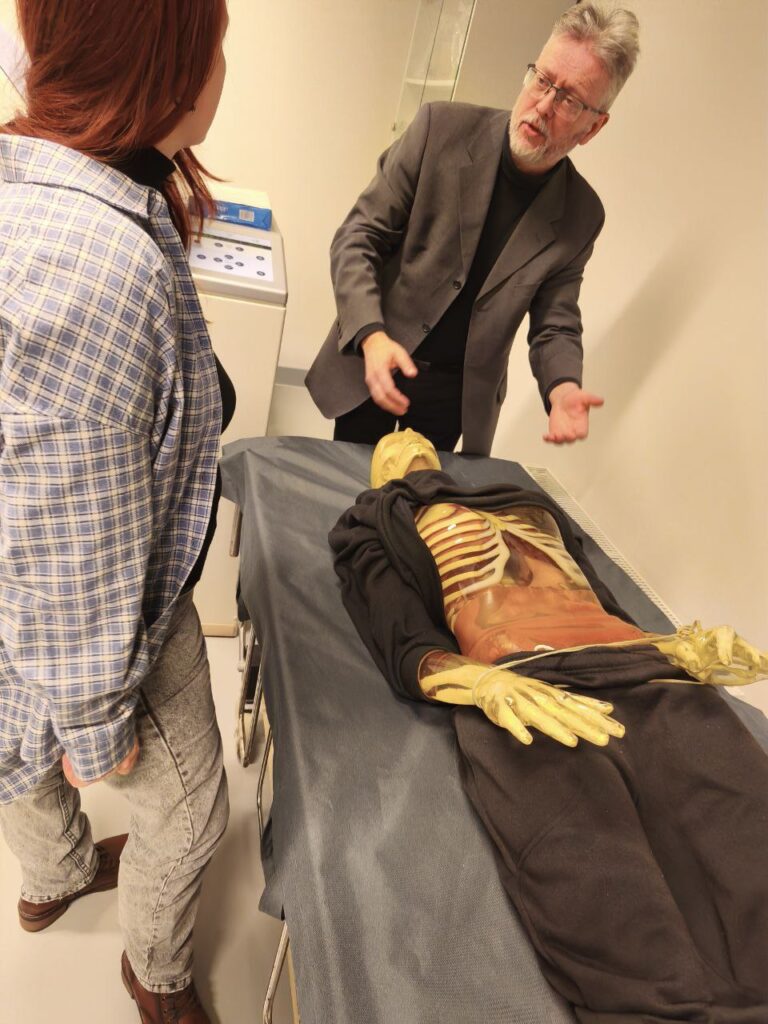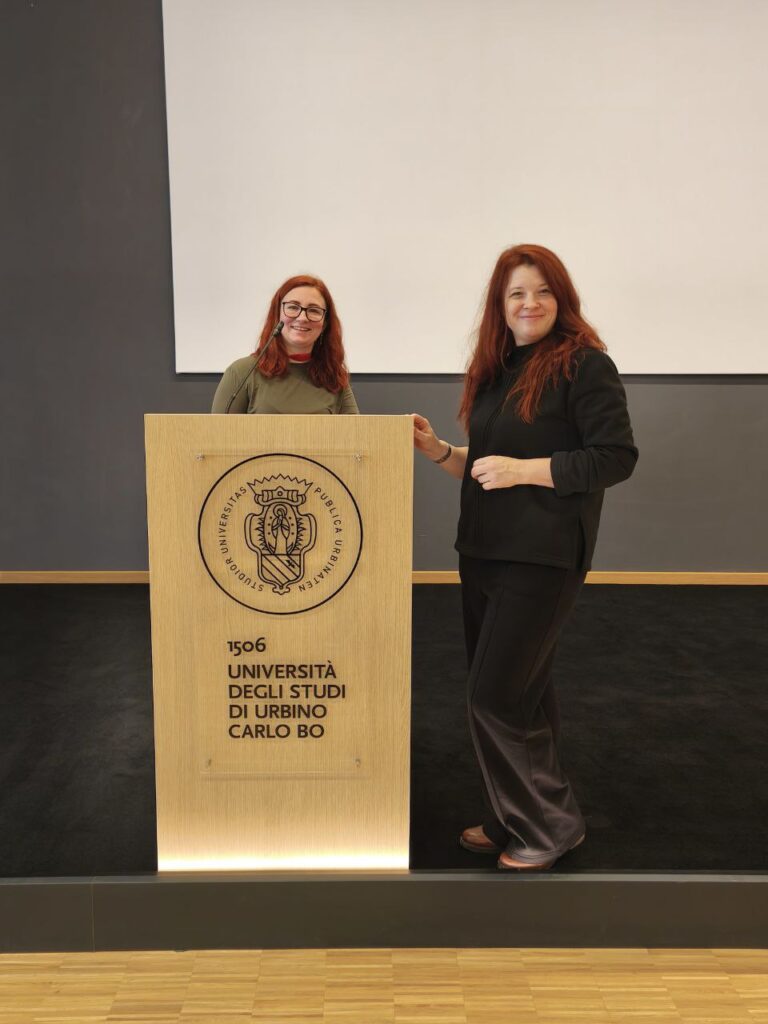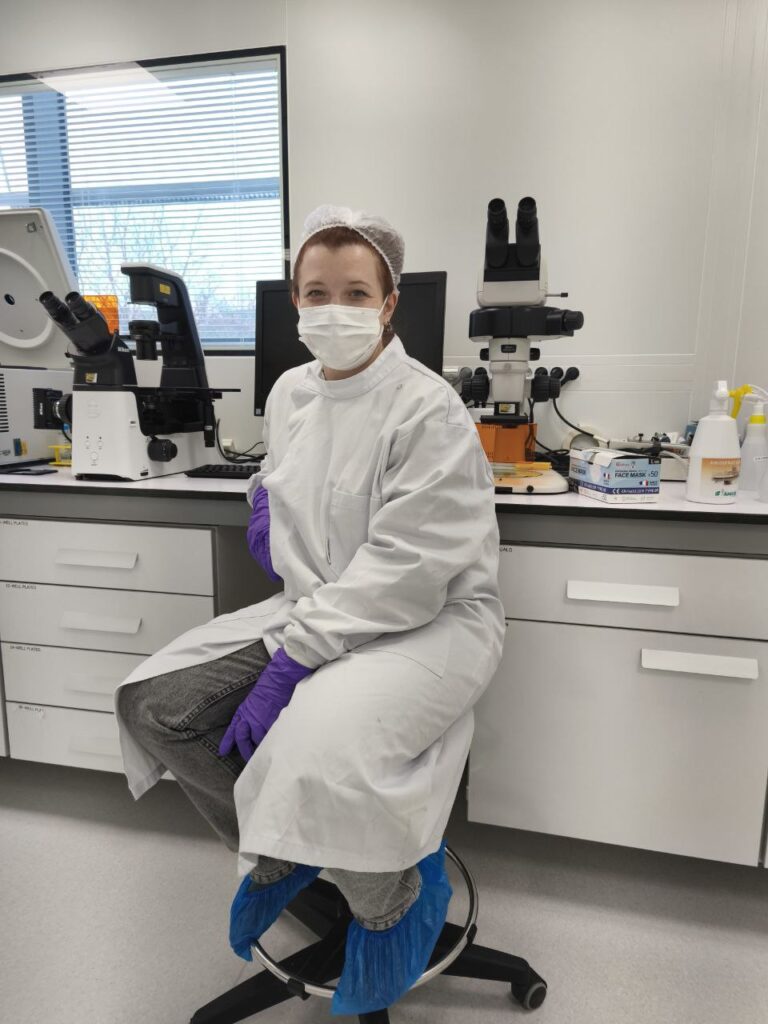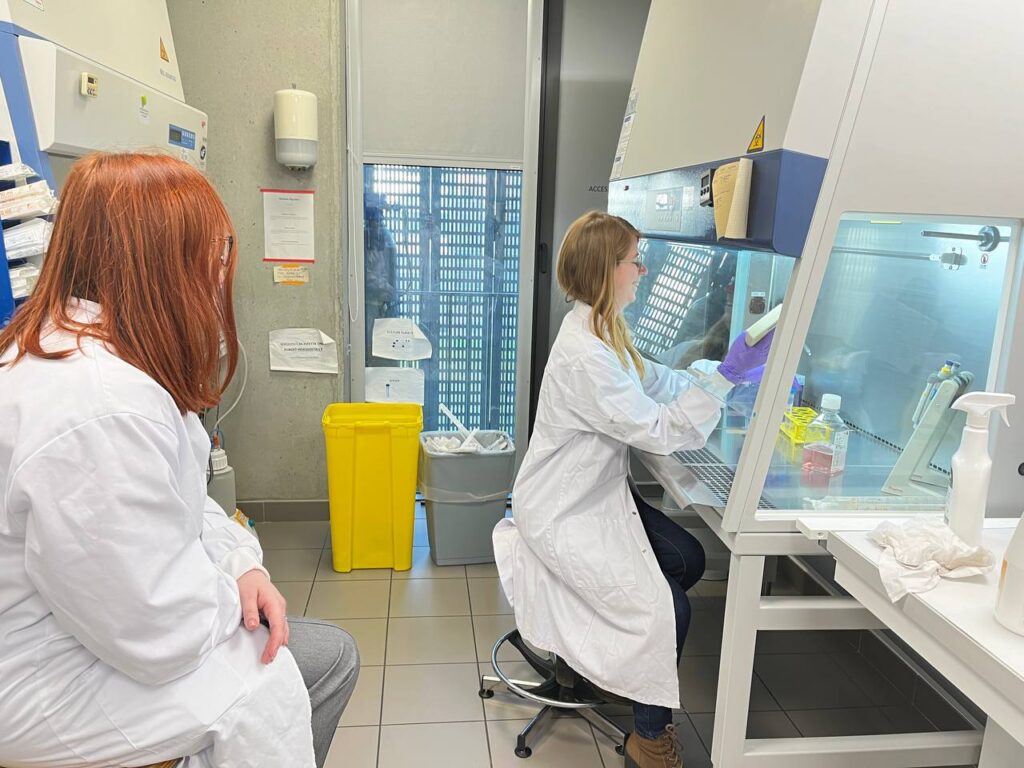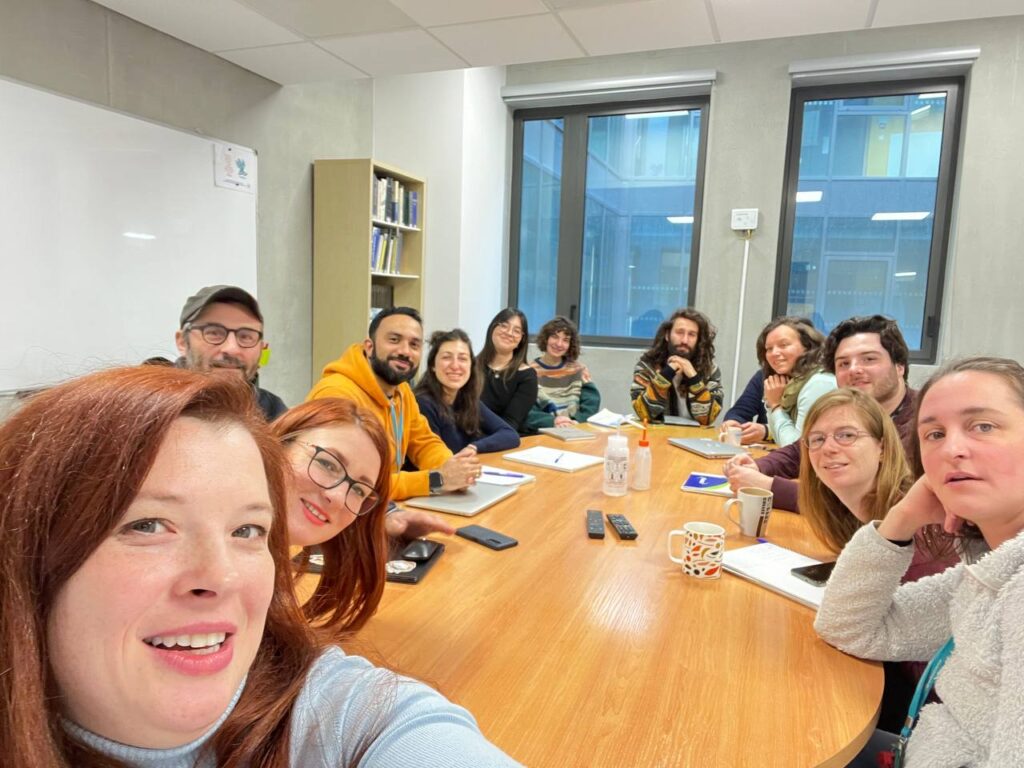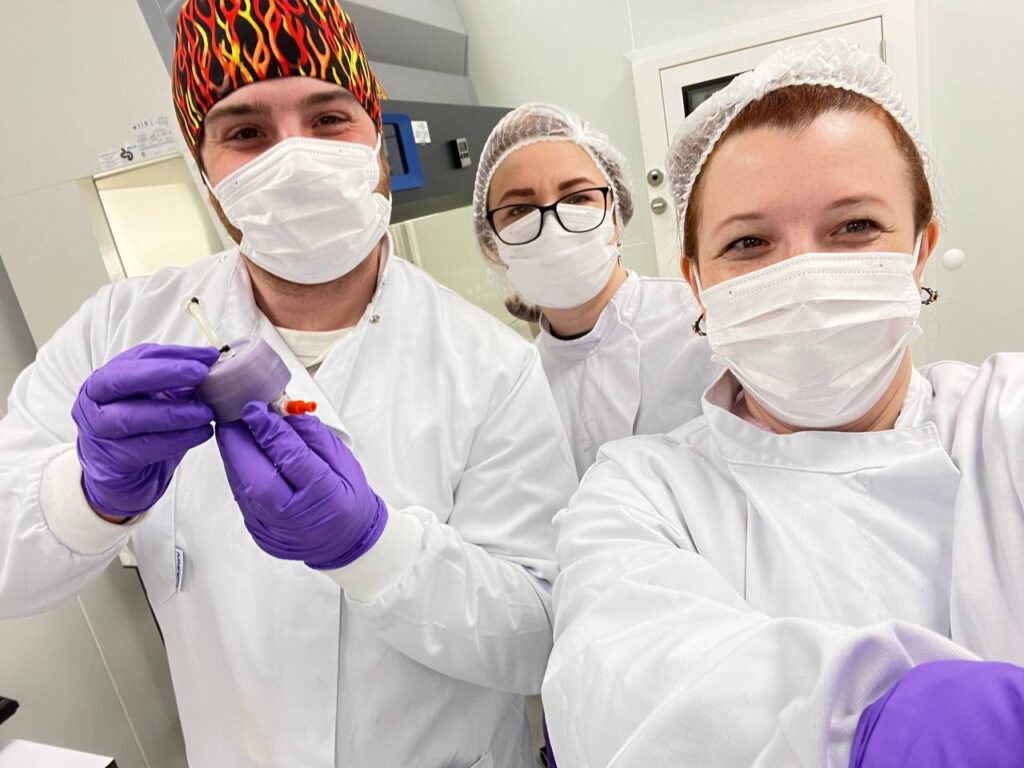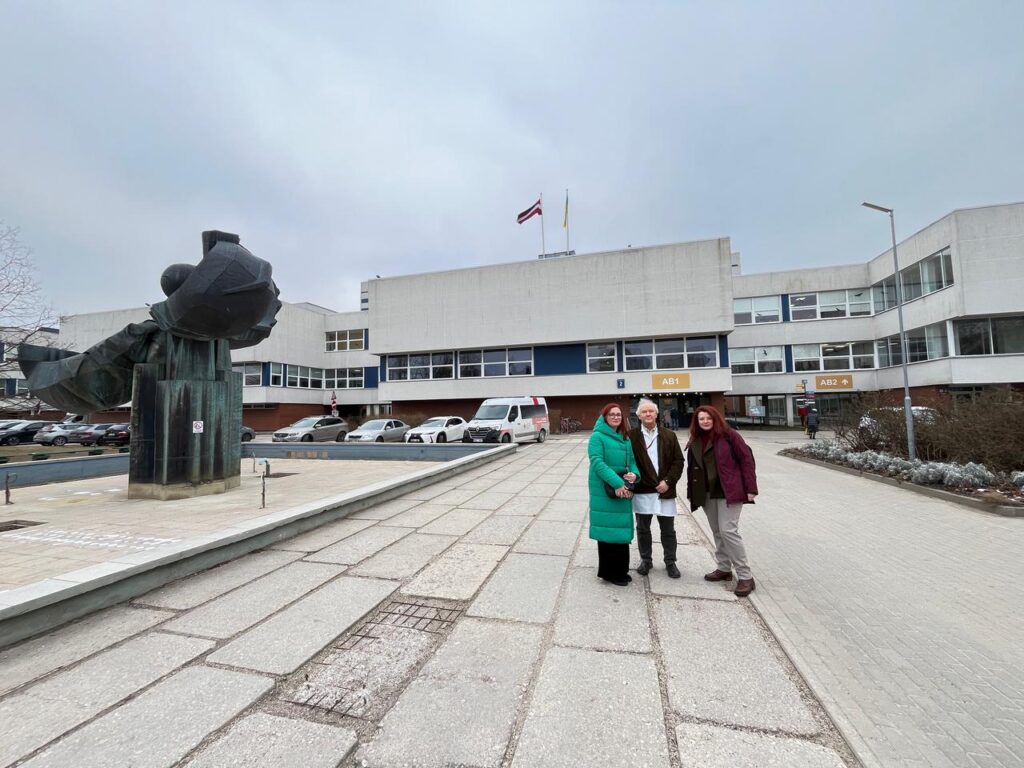From March 8 to 20, Associate Professors of the Department of Translational Medical Bioengineering, Olena Holembiovska and Tetiana Lutsenko, participated in the staff exchange program for researchers involved in the international project “Improving Professional Communication on Biosecurity and Biohazard Management in Medicine, Pharmacy, and Biotechnology” (2024-25) under the European Union’s EURIZON FELLOWSHIP PROGRAMME: “Remote Research Grants for Ukrainian Researchers.”
As part of the exchange program, visits were made to the following European partner institutions:
- Faculty of Medicine, Department of Internal Diseases, Riga Stradiņš University (Latvia)
- Riga East University Hospital (Latvia)
- Department of Biomolecular Sciences, School of Pharmacy, University of Urbino Carlo Bo (Italy)
- Institute of Molecular and Supramolecular Chemistry and Biochemistry, Lyon University (France)
Riga, Latvia. Ukrainian researchers attended a specialized session on the medical aspects of biosecurity, including infection control and the safe handling of medical equipment. This seminar at the Faculty of Medicine, Riga Stradiņš University, significantly enhanced the researchers’ professional communication skills by introducing them to cutting-edge infection control practices. Participants also learned about innovative methods for predicting the spread of infections through wastewater analysis, a key tool in epidemiological research. This session provided essential knowledge on medical biosecurity, directly supporting collaborative efforts in Ukraine.
Urbino, Italy. A particularly valuable seminar focused on biosecurity in bioprinting with living cells and microfluidics. It provided a comprehensive understanding of the latest biosecurity methods in bioprinting and microfluidics, along with hands-on training that enabled participants to apply these practices in laboratory settings.
Lyon, France. The training course in biosecurity for bioprinting emphasized risk assessment, biohazard protection measures, and working with hazardous biological agents. The practical tools acquired during this session were recognized as highly relevant for researchers in biotechnology and biopharmaceuticals. Participants gained insights into advanced safety protocols for bioprinting, including safe handling of living cells, the use of specialized equipment, and strict safety measures to mitigate potential risks. Researchers engaged in the full bioprinting process with living cells—from thawing to printing on specialized bioprinters using robotic arms and culturing the obtained tissue in a bioreactor.
Ukrainian researchers expressed a strong interest in continuing collaboration with the European institutions they visited. They recommended organizing similar programs in the future, particularly focusing on emerging fields such as bioprinting and biosecurity. The exchange facilitated the integration of Ukrainian researchers into the European scientific community, fostering professional networking and opportunities for joint research.
During the visit, plans for future activities were also developed:
- Biosecurity training in Ukraine – Developing strategies for organizing biosecurity training programs in Ukraine.
- Ongoing collaboration – Establishing future joint research projects with European institutions.
- Enhancing biosecurity standards – Aligning biosecurity standards in Ukrainian laboratories with leading international practices.
The staff exchange program was successfully conducted, promoting collaboration, expanding research opportunities, and strengthening biosecurity practices. The knowledge and skills gained will contribute to the organization of similar future programs, ensuring continued close cooperation between Ukrainian and European institutions.
